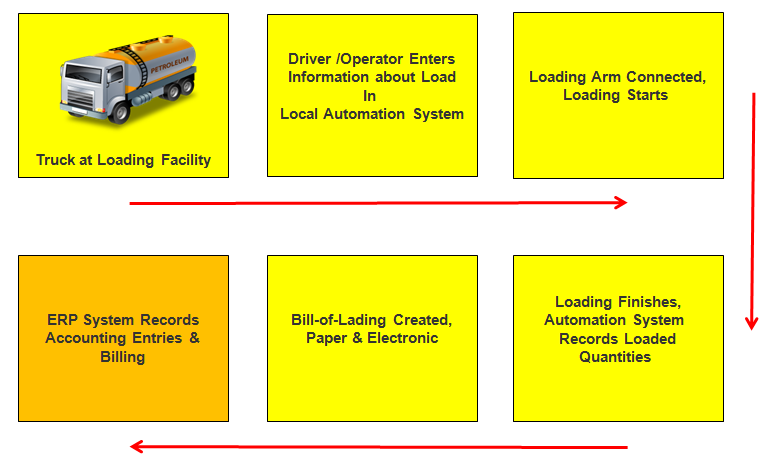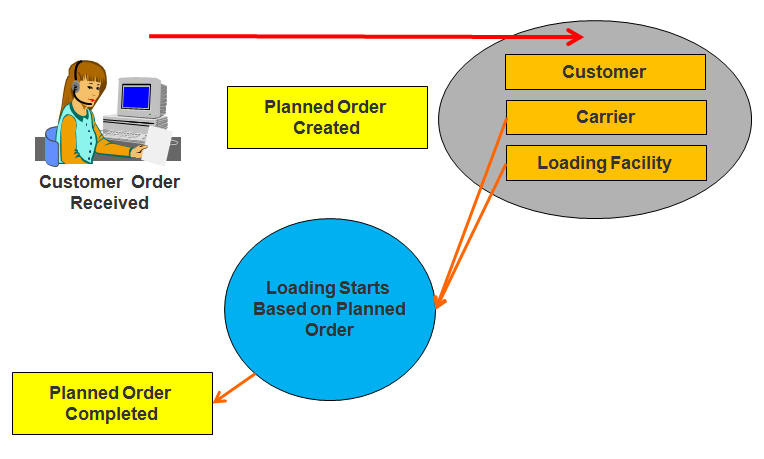Large Quantity of Bill-of-Ladings
The loading process for a truck or railcar starts by the driver or operator typing in all the necessary information about the load being hauled in a local system, this is referred as the local automation system, some of this information include customer shipto, product being loaded etc. After the information is entered in the local automation system, the driver or operator connects the loading arm to the vehicle and loading process starts. The local automation system records the quantities being loaded by communicating to a scale or a meter, or sometimes like in the case of railcars the outage is recorded and based on charts the gross volume in obtained for the railcar.

Loading Process
The loading process can be classified into 2 kinds:
1- The 1st kind is called unplanned loading, this where the driver or carrier shows up at the loading facility without an order or prior planning, this type of loading is common for fuels.
2- The 2nd kind of loading is planned loading, in this case the driver shows up with a planned order number. Typicaly the planned order is created prior to loading by the customer placing an order to purchase certain product on certain day/time. The planned order to is sent to the loading facility, carrier and customer. When the driver shows up at the loading facility, they type the planned order number into the local automation system, loading start based on the planned order details.

Planned Order Process
Transaction Management Workbench (TMW-BOL) has been designed to deliver all required functionalty to process the Bill-of-Ladings from START to FINISH.
Transaction Management Workbench (TMW-BOL) – is a certified SAP software built inside of SAP for the purpose of:
- Automating All Movements From Loading Facilities.
- Managing all movements of products at refineries, terminals or loading facilities, this includes sales, purchases and transfers.
- Processing Bill-of-ladings transaction at the loading rack using driver input.
- Producing all the required logistics and financial Documents/Postings.
TMW supports 2 methods of loading:
- Order Bases Loading Using Planned Order (Dispatched Loading)
- Normal loading Without Pre-Planning
TMW is a customizable software solution built within SAP using ABAP used to automate the processing rack, bulk, crude movements, TSW and deal transactions in your SAP system. By processing, we mean validating the data then creating the required SAP financial and logistics documents. TMW provides the required functionality to consolidate all such processing in one central place, doing so will provide your company with tremendous benefits in terms of cost reduction and business process visibility. TMW has been designed with great emphasis on ease of user interaction and strong audit/process controls.